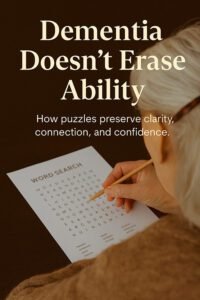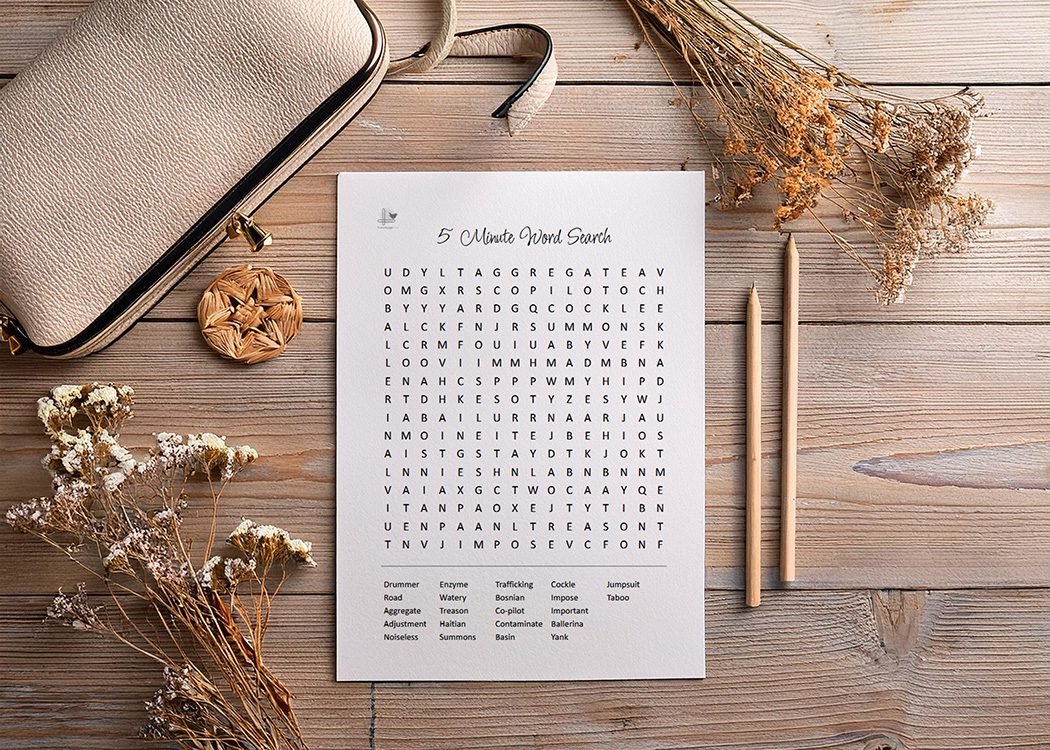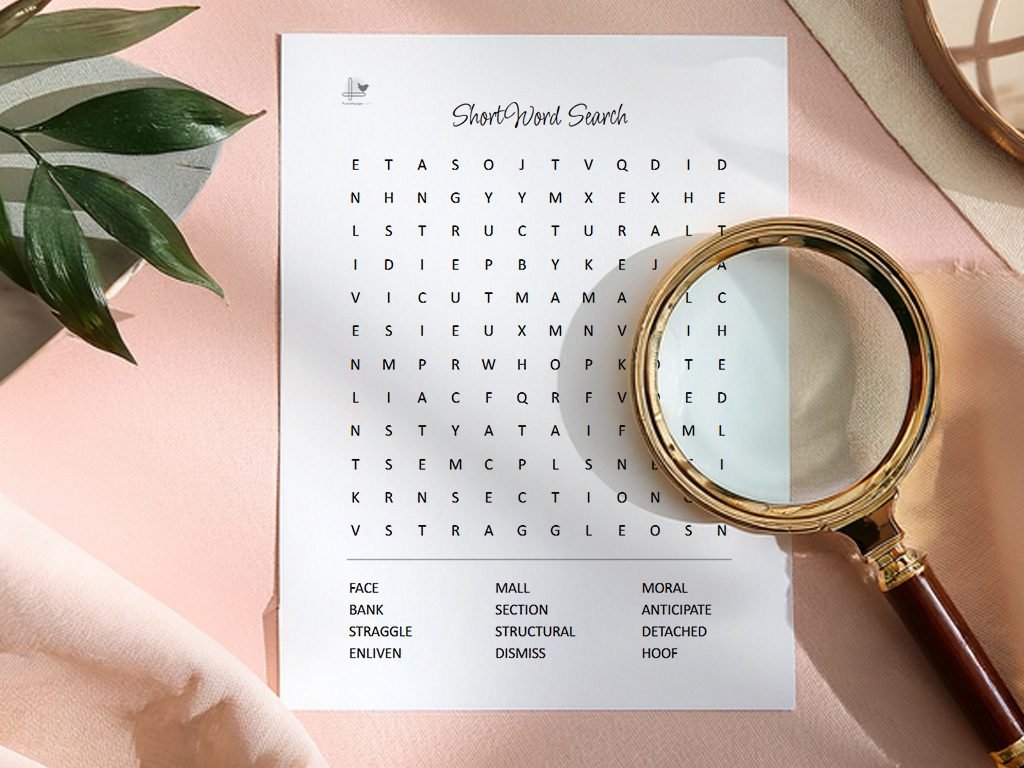There’s a common narrative about dementia — one of loss, decline, and helplessness. And while those realities exist, they don’t tell the full story. During my time working in a dementia care unit, I learned to see something else: ability. In moments that might seem small to an outsider — like solving a word puzzle — I witnessed focus, mastery, and leadership. Not just a glimpse of who someone used to be, but a clear and present expression of who they still are.
Word Puzzles Are More Than Just a Game
Word puzzles offer a rare mix of structure, simplicity, and flexibility — qualities that make them not only relaxing, but uniquely accessible across cognitive abilities. They don’t require short-term memory. They allow for pauses, repetition, and visual scanning — all of which enable engagement without stress.
And even more importantly, they offer something deeply human: the experience of competence.
The Joy of Collaboration
Another of the most underrated aspects of puzzles — especially word games — is their ability to create collaboration without competition. Solving a puzzle together invites easy teamwork.
There’s no timer, no winning or losing. You can sit side by side and work together in silence, or talk through clues in conversation. Each found word is a shared win.
These moments of cooperation can be subtle — but they are full of trust, respect, and joy.
From Theory to Reality: One Woman’s Joyous Leadership
One resident I worked with had difficulty remembering recent conversations and events. But when we sat down with a word puzzle, she immediately took the lead. And she was unstoppable. She had strategy. She had rhythm. She spotted patterns I completely missed. In short, we had a lot of fun!
She would joyfully guide us for two full hours every shift I worked. And when it was time to stop, she always knew. She didn’t just participate in those moments — she owned them.
What struck me most wasn’t what she remembered or forgot. It was the authority and clarity she brought to the task. Puzzles gave her a way to lead, contribute, and be recognized for what she could do — not what she couldn’t.
And she loved every moment of it!
What the Research Says About Cognitive Engagement
A 2022 study published in NEJM Evidence found that regular engagement in cognitive activities — including puzzles and word games — was associated with a lower risk of developing mild cognitive impairment (MCI) in older adults. Participants who consistently used puzzles showed signs of delayed memory decline compared to those who didn’t.
The World Health Organization echoes this perspective in its global guidelines, identifying cognitively stimulating activities — puzzles, games, and reading — as a non-pharmacological strategy to support healthy aging and reduce dementia risk.
What these findings suggest is that preserving engagement matters — not as a cure, but as a way of maintaining identity, function, and quality of life.
Puzzles as Opportunity Rather Than Distraction
Too often, activities in care settings are framed as distractions — something to fill the time. But puzzles offer something different. They offer opportunity:
- To focus
- To succeed
- To work in silence, or in collaboration
- To take ownership of a task
- To feel capable
That experience isn’t just therapeutic — it’s affirming.
Final Thoughts
Dementia care doesn’t have to be centered on what’s missing. Sometimes, all it takes is a puzzle — simple, accessible, open-ended — to remind us what’s still strong. We don’t have to rescue or reduce. We can collaborate. We can respect. And we can witness ability.










